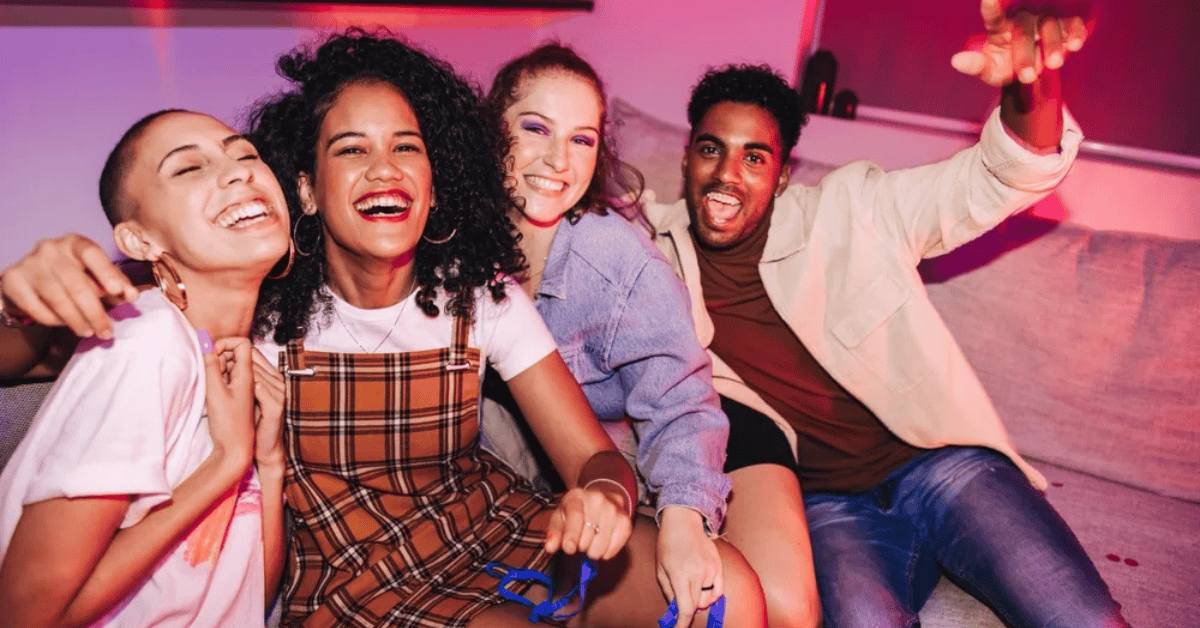Is Gen Z Really the Villain Here?
So here we are—again. Another viral video claiming an entire generation has gone off the rails. This time, it’s Gen Z in the hot seat, labeled “the most toxic generation in human history.” Sounds dramatic, right? But here’s the thing—it’s not just clickbait. That YouTube video stirred a hornet’s nest. And it’s time to unpack it.
Let’s take a walk through this mess—calmly, rationally (well, mostly), and with a sense of humor because… internet.
Who Is Gen Z, Really?
Before we start throwing punches or pity parties, let’s define who we’re talking about.
Gen Z includes anyone born between 1997 and 2012 (roughly). They grew up with smartphones in their hands, Wi-Fi in the air, and more content in a week than Boomers saw in a lifetime.
They’re digital natives. Mental health warriors. Social justice soldiers. And, depending on who you ask, emotionally fragile keyboard gladiators.
What Sparked the “Most Toxic Generation” Label?
Ah yes, this viral YouTube video—titled provocatively, packed with quotes, rants, receipts, and TikToks. The narrator breaks down how Gen Z is not just different… but allegedly damaging society.
Key takeaway? They’re hypersensitive, addicted to outrage, and more interested in clout than truth.
And you know what? People couldn’t stop watching. Millions of views. Thousands of comments. A digital wildfire.
Key Points from the Viral Video
Quote drop: “They don’t want jobs—they want followers.”
Stat alert: 79% of Gen Zers say mental health is their top concern.
Claims made:
Gen Z cancels people for breathing wrong
They call capitalism evil while shopping on Shein
“No one can take a joke anymore”
The video argues that Gen Z has twisted empathy into narcissism. And, man, the internet ate it up.
Cancel Culture and Outrage Addiction
Let’s talk about the modern-day witch hunt: cancel culture.
Gen Z has mastered it. One wrong tweet? You’re done. Misstep in 2012? Dragged.
Is it accountability or pure vengeance? Depends who you ask. For some, it’s justice for the voiceless. For others, it’s public stoning in 1080p.
Hypersensitivity or Emotional Intelligence?
Okay but—maybe they’re not fragile. Maybe they’re just more emotionally literate.
Gen Z openly discusses trauma, therapy, anxiety. They prioritize mental health—unlike previous generations who just, ya know, drank it away or punched walls.
Trigger warnings and safe spaces might sound soft to Boomers, but maybe they’re signs of evolution?
Gen Z and Social Media – Fuel or Fire Extinguisher?
Let’s not pretend Gen Z created social media—but they definitely took it to new dimensions.
TikTok trends, Instagram filters, Twitter pile-ons—it’s nonstop. Gen Z lives online. Opinions fly. And rage gets clicks.
Algorithms reward hot takes, not thoughtful discussions. So guess what dominates? Rage. Outrage. Fake virtue.
Memes, Misinformation & Virtue Signaling
Gen Z speaks meme fluently. Sometimes it’s hilarious—sometimes harmful.
Memes are used to shame, bully, cancel. And virtue signaling? Oh, it’s a sport.
Posting a black square during protests but doing nothing offline? That’s slacktivism, baby.
Entitlement and “Main Character Syndrome”
Ever scrolled through TikTok and seen someone filming a meltdown like it’s a movie? That’s Main Character Energy.
Gen Z is often accused of thinking the world revolves around them. “I deserve it”—without earning it.
But is it their fault? Or the result of growing up with influencers getting rich doing nothing?
Workplace Attitudes and Professional Life
Managers are crying into their coffee over Gen Z employees.
“They ghost interviews.”
“They quit if the vibe’s off.”
“They want six-figure salaries and work-life balance—on day one.”
But maybe they’re just rejecting hustle culture? Maybe they saw their parents burn out and said “nah.”
Are They Actually the Most Depressed Generation?
Yes, stats are scary:
Gen Z reports the highest levels of anxiety, depression, and suicidal ideation.
90% say social media negatively impacts mental health.
They’re self-aware—but also drowning in curated perfection and endless comparison.
Victim Mentality or Real Struggles?
The line between raising awareness and milking victimhood is blurry.
Some use trauma like a badge of honor. Others fake diagnoses for clout. But many genuinely suffer—and are just trying to cope out loud.
It’s messy.
Reactions from Millennials, Boomers & Gen X
Older generations love to roll their eyes at Gen Z.
Boomers: “You don’t know real hardship.”
Gen X: “You’re soft.”
Millennials: “You’re like us… but extra.”
Some critiques are valid. Others? Just the usual generational eye-rolling.

Are There Any Positives to Gen Z’s Behavior?
Let’s give credit where it’s due.
They care. About climate change, racism, equality.
They speak out.
They aren’t afraid to call out hypocrisy—even if it’s messy.
They’re pushing for change—even if their methods spark debate.
Expert Opinions – What Psychologists & Sociologists Say
According to Dr. Jean Twenge (author of iGen), Gen Z’s behavior reflects a digital upbringing.
Social media = more anxiety.
Less face-to-face interaction = awkwardness.
Over-parenting = less independence.
So it’s not toxicity—it’s adaptation.
The Bigger Picture: Are We Just Blaming the Youth (Again)?
Let’s be real: every generation gets dragged.
Boomers were called sellouts.
Gen X was labeled lazy.
Millennials were avocado-munching snowflakes.
Now it’s Gen Z’s turn. Is it fair? Nope. Is it expected? Totally.
Conclusion – Is Gen Z Really Toxic or Just Different?
Look—Gen Z isn’t perfect. But they aren’t monsters either.
Yes, they cancel too fast. Yes, they live online. Yes, they can be intense.
But they’re also empathetic, aware, and not afraid to shake the table.
Maybe they’re not toxic. Maybe they’re just… growing. In public. With a million cameras on them.
FAQs About Gen Z – What People Actually Want to Know
1. Why is Gen Z called the most toxic generation?
Because of cancel culture, hypersensitivity, and social media drama—but it’s more complex than that.
2. Is Gen Z really more depressed than other generations?
Yes. Data shows Gen Z reports the highest rates of anxiety and depression.
3. Why do people say Gen Z is entitled?
They prioritize mental health, flexibility, and fairness—which older folks interpret as entitlement.
4. Are Gen Z actually good workers?
They value purpose over paychecks. Some say they lack discipline, others say they just won’t settle.
5. Why does Gen Z love cancel culture?
It feels like justice—but often lacks nuance and forgiveness.
6. What’s “main character syndrome”?
It’s acting like your life is a movie. A lot of Gen Zers do this on TikTok.
7. How is Gen Z different from Millennials?
More online. More blunt. More politically active. Also… fewer skinny jeans.
8. Is Gen Z more sensitive or more aware?
A bit of both. They’re emotionally in-tune but also easily overwhelmed.
9. What are the pros of Gen Z culture?
Inclusivity, empathy, activism, digital fluency.
10. Are Gen Z ruining the workplace?
Depends who you ask. Some say yes—others say they’re modernizing it.
11. Why does Gen Z prefer therapy and self-care?
They grew up destigmatizing mental health and want healthier lives.
12. What’s the deal with Gen Z and social justice?
They’re super active—but sometimes preachy or performative.
13. Why does Gen Z seem always offended?
They’re more vocal about issues—but yes, it can go overboard.
14. Do all Gen Zers act the same?
Not even close. The generation spans teenagers to mid-20s. Huge range.
15. Can Gen Z change the world?
If they channel their passion right? Absolutely.
Please don’t forget to leave a review.
Explore more by joining me on Gemscor.














